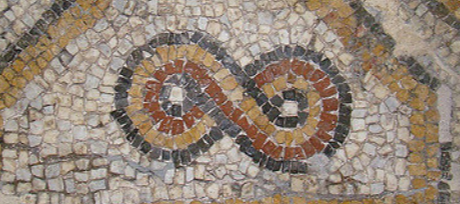Happy Twentieth of September!
Happy Twentieth of September!
It appears that he march of time and implacable updates to WordPress have blown away my ability to create new posts at NewEpicurean.com, so until I get that fixed (soon!) I just have to say, with Hiram, “Happy Belated 20th”! It’s a great time to remember Vatican Saying 10, and no matter what distracts you: “Remember that you are mortal and have a limited time to live and have devoted yourself to discussions on Nature for all time and eternity and have seen “things that are now and are to come and have been.”
Note 1: You know, it doesn’t really make sense to say that you have devoted yourself to something “for all time and eternity” when you’ve just said that you are mortal and have limited time, so I wonder if that version of VS 10 is not just a butchered translation / variation of the end of the letter to Pythocles: “All this, Pythocles, you should keep in mind; for then you will escape a long way from myth, and you will be able to view in their connection the instances which are similar to these. But above all give yourself up to the study of first principles and of infinity and of kindred subjects, and further of the standards and of the feelings and of the end for which we choose between them.” Clearly there are a HUGE number of intriguing questions that arise if we presume the universe as a whole has always existed, and I would think the focus of the recommendation would be on that aspect, and what it means for our own existence if in fact the universe, living things, and variations on all that we see today have existed back infinitely into the past (not necessarily here, but elsewhere in the infinite-sized universe).
Note 2:
Elli wrote:
Μέμνησο = Remember
ὅτι = that
θνητός ὤν = although you are mortal
τῇ φύσει = by nature
καὶ = and
λαβών = you took
χρόνον ὡρισμένον = limited time (to live)
ἀνέβης = you have ascended
τοῖς περί φύσεως διαλογισμοῖς = with the meditation of Nature
ἑπὶ τὴν ἀπειρίαν = to infinity
καὶ = and
τὸν αἰώνα = to eternity
καὶ = and
κατεῖδες = you have realized
τά τ’ ἐόντα = what is
τά τ’ ἐσσόμενα = what will be, and
πρό τ’ ἐόντα.= what was before
I have the impression that the E.S. 10 goes in consistency of what Lucretius said in this paragraph for Epicurus: “The living force of his soul won the day, and on he passed, far beyond the flaming walls of the world, traveling with his mind and with his spirit the immeasurable universe. And from there he returned to us – like a conqueror — to tell us what can be, and what cannot, and on what principle and deep-set boundary mark Nature has established all things”.
Hiram wrote:
I think the passage makes sense along the lines of “immortal blessings” like friendship. This is an un-developed theme in our discussions. My take: our ethics concerns direct, unmediated EXPERIENCE. Therefore this must refer to some “meditation on nature” experience(s) that ancient Epicureans had that were considered so ecstatic or joyful or epiphanic, that they FELT “eternal”.
Elli wrote:
The feeling of eternal is to live like a god among men. Here is the passage from the letter to Meneoceus : “Meditate therefore on these things and things akin to them night and day by yourself; and with a companion like to yourself, and never shall you be disturbed waking or asleep, but you shall live like a god among men. For a man who lives among immortal blessings is not like unto a mortal being”.
(Note: This post was originally placed on September 20 on Facebook, and is being reposted here now that posting is operational again.)
As Seneca recorded: Sic fac omnia tamquam spectet Epicurus! So do all things as though watching were Epicurus!
And as Philodemus wrote: “I will be faithful to Epicurus, according to whom it has been my choice to live.”
Additional discussion of this post and other Epicurean ideas can be found at EpicureanFriends.com.

